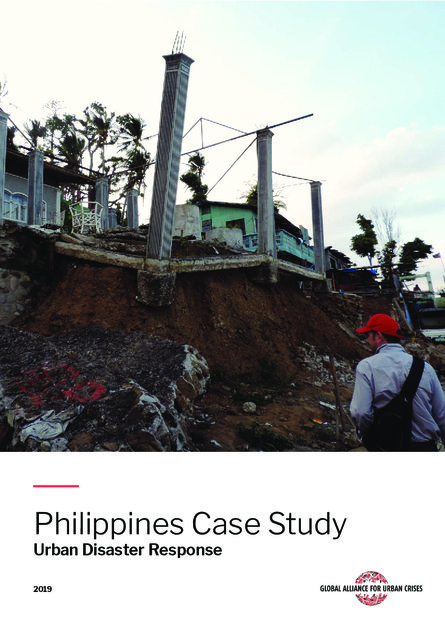
The Republic of the Philippines is a middle-income country that is fast urbanizing. It is located in a geographically high-risk position regarding natural disasters – typhoons, tsunamis, volcanic eruptions, earthquakes and landslides frequently occur and result in loss of life, damage to property and major disruption. In addition, there are areas where armed conflict periodically breaks out, again greatly affecting the civilian population and infrastructure.
This case study set out to present how Filipino emergency responders work following a disaster. One aim was to look at the correlation between the competencies and proficiencies presented in the Urban Competency Framework for Humanitarian Action (UCF) and what local skilled emergency responders felt were important attributes for responding to emergencies in the Philippines. This was achieved by conducting a desk study and interviews with key people from local organizations active in emergency response. Interviews were conducted with a range of responders, from senior members of organizations to grassroots responders working at the community level.
Links
Resource collections
- Topics
- UN Habitat - Urban Response Collection
- Urban Response - Urban Crisis Preparedness and Risk Reduction
- Urban Response Collection - Community Engagement and Social Cohesion
- Urban Response Collection - Economic Recovery
- Urban Response Collection - Environment and Climate Change
- Urban Response Collection - Housing, Land and Property
- Urban Response Collection - Urban Crisis Response, Recovery and Reconstruction
- Urban Response Collection - Urban Resilience
